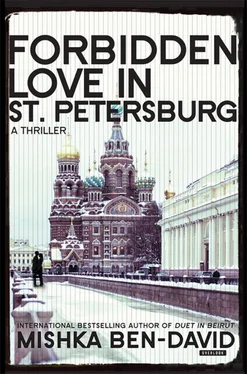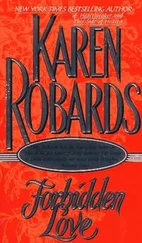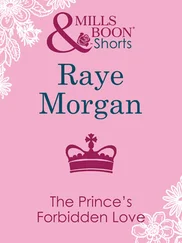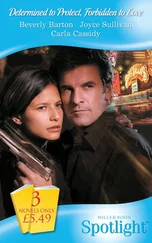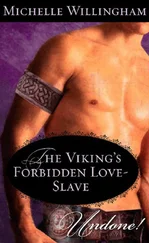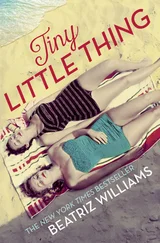She told me about Pushkin’s poetry which she ‘admired’ and about other poets she was less fond of.
Yevtushenko, for example, is more highly thought of among Jews and in Israel than here because of his poem ‘Babi Yar’, she said, and my heart skipped a beat. I’m sure you are familiar with it, she added.
No, doesn’t sound familiar, I said, and Anna quoted the first lines of the poem–which I’d read in translation and knew well–and told me about the Jewish common grave that had stirred the heart of the poet. Ilya Ehrenburg also wrote about ‘Babi Yar’, she added. But he had the direct support of Stalin, who admired his anti-Nazi articles so he allowed him to be pro-Jewish.
My heartbeat only returned to normal after we’d finished going through the poetry section and Anna began showing me the works of the great Russian classical authors–Tolstoy and Dostoyevsky, Chekhov and Gorky, all the way to the outstanding writers of today.
Not many shops stock Solzhenitsyn, she said, pointing to the works of the regime’s famous opponent who’d gone into exile in Vermont and returned to his native land on the eve of the collapse of the Soviet Union. I stock him not because I have a particular liking for the opponents of the regime but simply because he is a wonderful writer. It’s funny, you know, here in his time, he was considered a dissident and in the West was viewed as a reactionary, a nationalist and an anti-Semite.
Anna glanced at me then continued.
I also have a lot of literature in translation from all over the world. You’d be surprised to hear how much demand there is for it here, and she led me to another bookstand. Here you’ll find all of Goethe, the whole of Rilke, Heine, and here the moderns. And on the other side Shakespeare, Milton, Chaucer. Russians love all the great western classics.
I couldn’t put my finger on what it was that seemed strange to me about this shop other than its pristine orderliness. Perhaps it was the sheer volume of ‘the complete works of’ so that the shelves were lined with clusters of vividly coloured covers and the books were of the same height. There were only a few shelves on which this uniformity and variety of colour schemes was missing–those were the shelves with English and German classics stacked in no particular order, more like the kind of display I was used to in bookshops.
A lady came into the shop asking for a particular title. Anna had to search for it on the computer and I said that I had to get back to my office.
Next time we’ll go to your office, Anna called out as I headed for the door, and I just muttered that there was nothing interesting there for her to see and left.
In the weeks that followed, Anna didn’t deviate from her clearly expressed view that we were just ‘friends’. Her friendship was indeed dear to me but as time passed my desire to love her, embrace her, sleep with her again, simply drove me crazy. All day long my mind was filled with thoughts of her beautiful face, her easy smile, her eyes, her white body, her sensuality when we made love. But I knew she needed time and the hope of her love continued to fuel me in my every encounter with her.
I knew that I too needed time. I continued to go over in my mind why this love was doomed, and why I must not allow myself to take it further. But the magic web already had me in its grip and I couldn’t, of my own will, detach myself. The strands around me became tighter and tighter from one rendezvous to the next and I became its consenting captive.
I followed my beautiful jailer even when she rattled the keys of the prison gate; a rattle I heard once again when we went to Peterhof, the imperial estate nestled on the shores of the Gulf of Finland. We toured the beautifully kept gardens, with their ponds, their gilded statues and amazing array of fountains that reminded me of Versailles. I stood on the steps facing the statue of Samson tearing open the jaws of a lion, encircled by an array of cascading water. The gilded Samson was a giant when compared to the lion, a sight that utterly amazed me. Anna, perceptive as always, smiled as she asked: Is it his strength, his courage, or the folkloric Jewish tale that appeals to you? Droplets of water from the fountains around the shiny statue helped to disguise the beads of sweat the question provoked. All three, it would seem, I said.
A bit over the top, isn’t it? she asked as I studied each of the other figures around us. It’s possible to be entirely happy in a small apartment without all this grandeur, don’t you think? Small and well heated.
Could we in this magical city–or in any other place–in fact dive beneath the whirlpool of illusion sweeping us up, and be rid of the bonds of steel that were binding me, surfacing over clear water and one day find happiness in a small well-heated apartment?
Anna remained enigmatic about everything relating to her personal life. In our long conversations in restaurants and cafés, on our tours of the city’s bridges and canals, and even at Vashkirova’s, she told me about her childhood, about her studies, but said little, if anything, about her husband.
It’s still too painful, she said, and you wouldn’t want to see me crying, would you?
And I, consistent with my cover story, responded in the same vein. In doing so I relocated our farm in the Arava to a ranch in Sainte-Agathe in Quebec, a few hours journey from Montreal. I also had to substitute the cultivation of summer crops in the desert with the vegetation more common in northern climes. I described apple plantations, maple trees, and fields of wheat, told her about the tractor I’d started to drive when I was only thirteen, and spoke about my parents. The story of the hardships experienced by Eastern European immigrants who came to Israel, was turned into a tale of the difficulties endured by an Indian who emigrated to Canada. His love affair and subsequent marriage to the daughter of a local rancher whilst he was a student at the university of Montreal and the sudden death of his father-in-law, led him to settle down among French-speaking Québécois farmers.
And they accepted him?
He never really became ‘one of them’, I replied, transposing the foreignness of my father. At home we spoke English–my father didn’t know any French–and his feeling of being an outsider rubbed off on me. I was a small child when the Bloc Québécois came to power and made French the only official language. My father then sent me to a kindergarten and subsequently a private school for English speakers. One by one, the members of the English-speaking community left the region, including the small numbers of farmers among them, but he continued to live there, modestly, working hard, always in the shadow of my lovable mother who acted as a go- between with their neighbours.
And why didn’t you stay on the farm? Anna wanted to know. Isn’t that more attractive than going into business?
I loved the farm, but I was different from all my peers in the area, both in looks and in language. I didn’t have any friends there and didn’t want to stay. I also wasn’t able to buy another farm and my father was still a healthy man. It made no sense for me to hang on until I could take over from him so I decided to study business administration rather than agriculture and didn’t return to the farm.
Tell me about Montreal, Anna asked. There must be something magical about it if you left the farm to go there. We were sitting in a small bistro on the banks of the river after Anna had explained to me that the word ‘Bistro’ comes from Russian and means ‘quickly’. It was evening, and the skies over the Gulf were lit up by the last rays of the setting sun. Apart from us, there were only two other couples in the place. On every table there was a small candle burning and we sat there holding hands. Anna’s almond eyes gazed at me with the inquisitiveness and eagerness of an adolescent expecting her knight in shining armour to transport her on his horse to an unknown land.
Читать дальше
